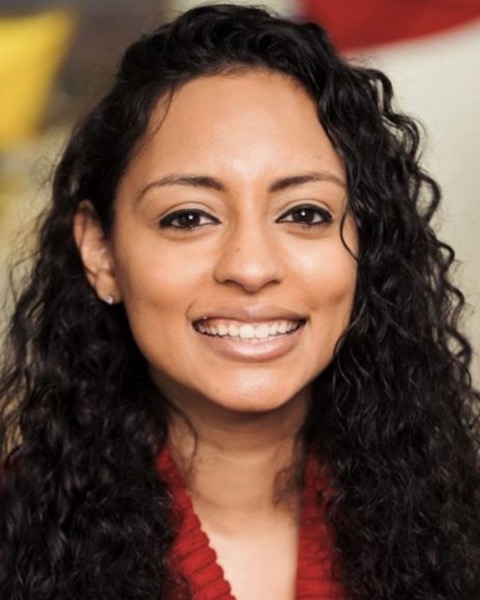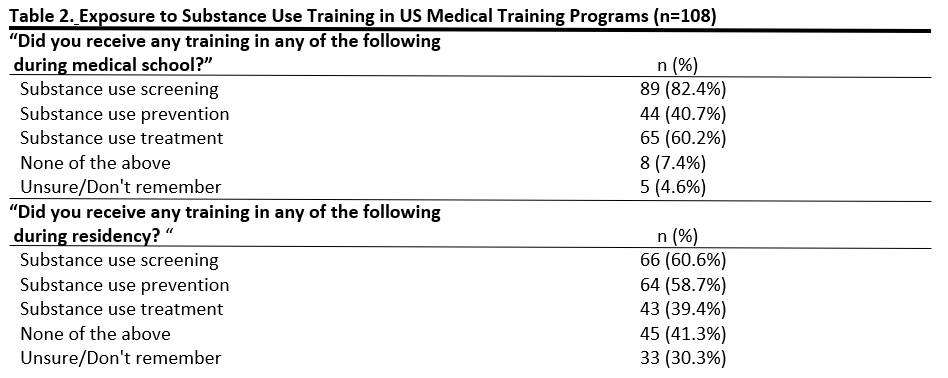Adolescent Medicine: Substance Use
Adolescent Medicine 2
12 - Screening for Caregiver Substance Use: Preventing Adverse Childhood Experiences and Health Outcomes
Publication Number: 12.2

Samara R. Jinks-Chang, MD/MPH/MS (she/her/hers)
Adolescent Medicine Fellow
Johns Hopkins Children's Center
Baltimore, Maryland, United States
Presenting Author(s)
Background: Approximately 1 in 4 US children live with a caregiver with a substance use (SU) disorder, an adverse childhood experience with poor long-term health outcomes. Pediatricians have a responsibility to identify and support affected families. However, stigma and insufficient knowledge limit pediatrician adherence to AAP recommendations for universal caregiver SU screening.
Objective: To evaluate the impact of pediatric resident SU education on preparedness to screen for caregiver SU, stigma, and screening practices.
Design/Methods: Data come from two years of anonymous baseline surveys from a quality improvement initiative to increase caregiver SU screening in pediatric primary care. Residents were assessed on their receipt of SU-specific education, current screening practices, perceptions of pediatrician screening responsibility, stigma related to caregiver SU, preparedness to screen, awareness of resources, confidence in providing resources, and self-perceived knowledge on caring for families with SU concerns. Bivariate analyses evaluated associations between SU education, provider stigma, preparedness, and current screening practices.
Results:
The majority of 108 surveyed residents agreed screening for caregiver SU is a pediatrician’s responsibility that benefits patients and families. However, few screened at most annual well visits, and many only screened if they had specific concerns about household SU (Table 1). Most residents received some SU education in medical school or residency, although less than half had been taught SU prevention (Table 2). Residents who received medical school SU education had less stigma, specifically feeling less angry or frustrated towards caregivers who use substances. Residents educated during residency were more likely to have screened previously, and felt more prepared to screen, knowledgeable when caring for families with concerns, aware of useful resources for families, and confident in supporting families affected by SU (Table 3).
Conclusion(s):
Although most residents felt screening for caregiver SU benefits patients and families, most did not follow universal screening recommendations. Almost half of residents only screened if concerned about potential caregiver SU. Fortunately, residency SU education may improve pediatricians’ preparedness to screen and care for families by decreasing stigma, increasing awareness of resources, providing knowledge, and building confidence around discussing SU with families. Future work will address these goals by developing residency curricula to increase screening, support families, decrease stigma, and ultimately deter SU.


